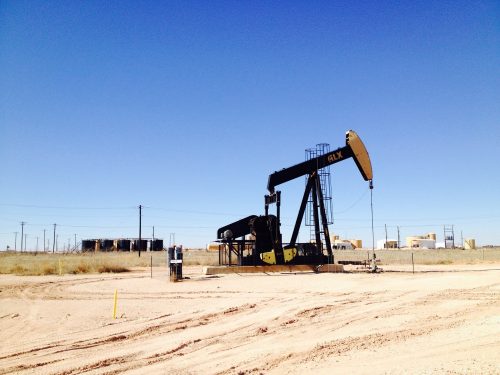How a high-throughput reactor can prevent environmental damage rather than merely assess it
It has become commonplace to clean up man-made environmental messes, but a recent publication from the Plata lab in Yale’s Chemical and Environmental Engineering Department focused on generating more precise predictions of potential environmental damages before they occur. Led by Andrew Sumner, a fourth-year doctoral candidate, the study investigated the various chemical processes that occur in shale subsurface during hydraulic fracturing, commonly known as fracking, a process used to get fossil fuels out of tough-to-reach reservoirs.
In fracking, water is injected into shale reservoirs to break the rock apart and release the fossil fuels stored inside. Typically, industry operators add many chemicals to the injected water to increase efficiency. Sumner noticed that water emerging from the subsurface contains chemicals different from those originally injected, implying underground chemical changes. He built a reactor system that could analyze 15 chemicals under certain conditions. The reactor conditions could be expanded to more closely emulate the complexity of hnactual shale.
Sumner and Plata agree that future use of this reactor will impact both industry operators and environmental regulators. As the chemistry of fracking is better understood, well operators can more intelligently design their chemical mixtures and eliminate the ones with unwanted side reactions or use them more conservatively. Regulators can also be on the alert for chemicals in wastewater.
The reactor allows researchers to assess the possible reactions occurring under a set of conditions quickly, a result Plata believes will be transformative in the field.
The scientists hope to further the implications of the reactor with a computer model which synthesizes the information gained by the system. “Traditionally, environmental engineers have cleaned up past messes and looked at what was wrong in the first place. Now, we can learn beforehand, rather than confront it later on,” said Sumner.

